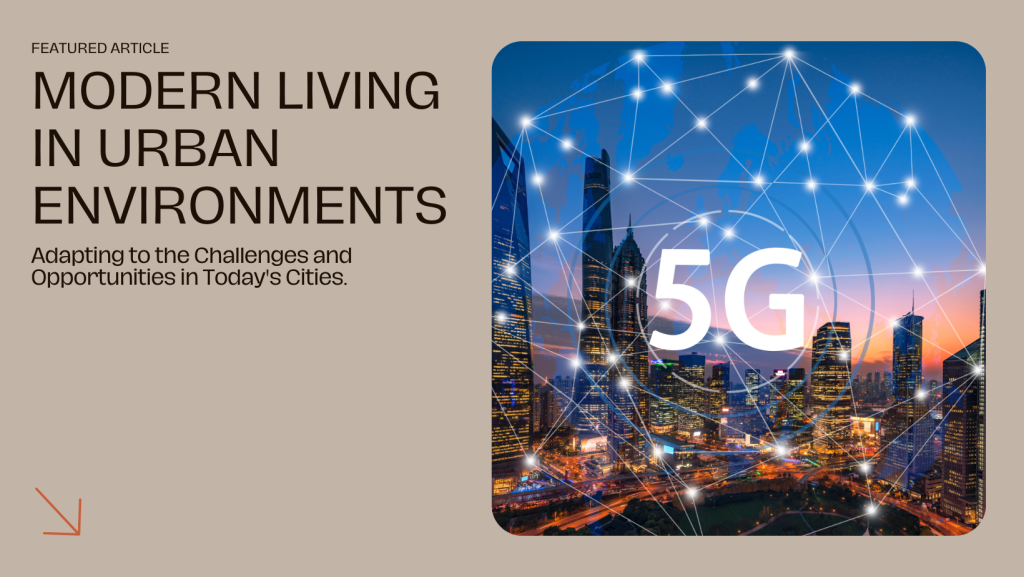The process of urbanization is changing the way we work, live, and engage with our surroundings. This has implications and opportunities for contemporary urban living. In order to improve their quality of life, urban inhabitants must adjust to the demands of city living while taking advantage of the advantages of urbanization, from affordable housing and transportation to environmental sustainability and community involvement.
Housing Affordability and Accessibility: As the population of cities grows and the demand for housing rises, urban inhabitants’ concerns about affordability and accessibility of housing become more urgent. Both renters and landowners face difficulties as a result of the rising cost of real estate and the scarcity of available homes, especially in large cities.
Urban planners and legislators must give priority to affordable housing projects, encourage mixed-income neighborhoods, and provide incentives for creative housing solutions like microapartments, co-living spaces, and cooperatives for inexpensive housing in order to address these issues.
Transportation & Mobility: In order to traverse crowded streets and reduce environmental impact, urban living frequently necessitates reliance on public transportation and other mobility options. Effective public transportation networks, bike lanes, infrastructure designed to facilitate pedestrian traffic, and shared mobility services like ride- and bike-sharing are all essential for encouraging accessible and sustainable urban transportation. Reliance on traditional car ownership is decreased and mobility alternatives are further enhanced by embracing smart mobility solutions like autonomous driving and electrified vehicles.
Environmental Sustainability and Resilience: There are particular challenges for environmental sustainability and resilience in urban environments because of their density and complexity. Cities need to implement policies and technology that reduce their ecological footprint and encourage environmental stewardship, from waste management and climate change mitigation to air and water pollution. Building resilient and sustainable communities that can resist the challenges of climate change and environmental degradation requires a comprehensive approach that includes green building techniques, renewable energy programs, urban green spaces, and sustainable transportation options.
Community Engagement and Social Cohesion: Although living in an urban setting might occasionally feel lonely, promoting social cohesion and community engagement is crucial for developing lively, inclusive urban settings. In order to promote social interaction, create a sense of community, and create a sense of belonging, community centers, public parks, cultural institutions, and neighborhood groups are essential. Prioritizing mixed-use projects, walkable neighborhoods, and public areas in urban planning initiatives fosters social integration and interaction, which improves the general well-being and standard of living of city dwellers.
In summary, contemporary urban living offers both possibilities and problems to citizens and decision-makers. Cities may develop livable, inclusive, and sustainable urban environments through addressing housing affordability, encouraging sustainable mobility, improving environmental resilience, and encouraging community engagement.


